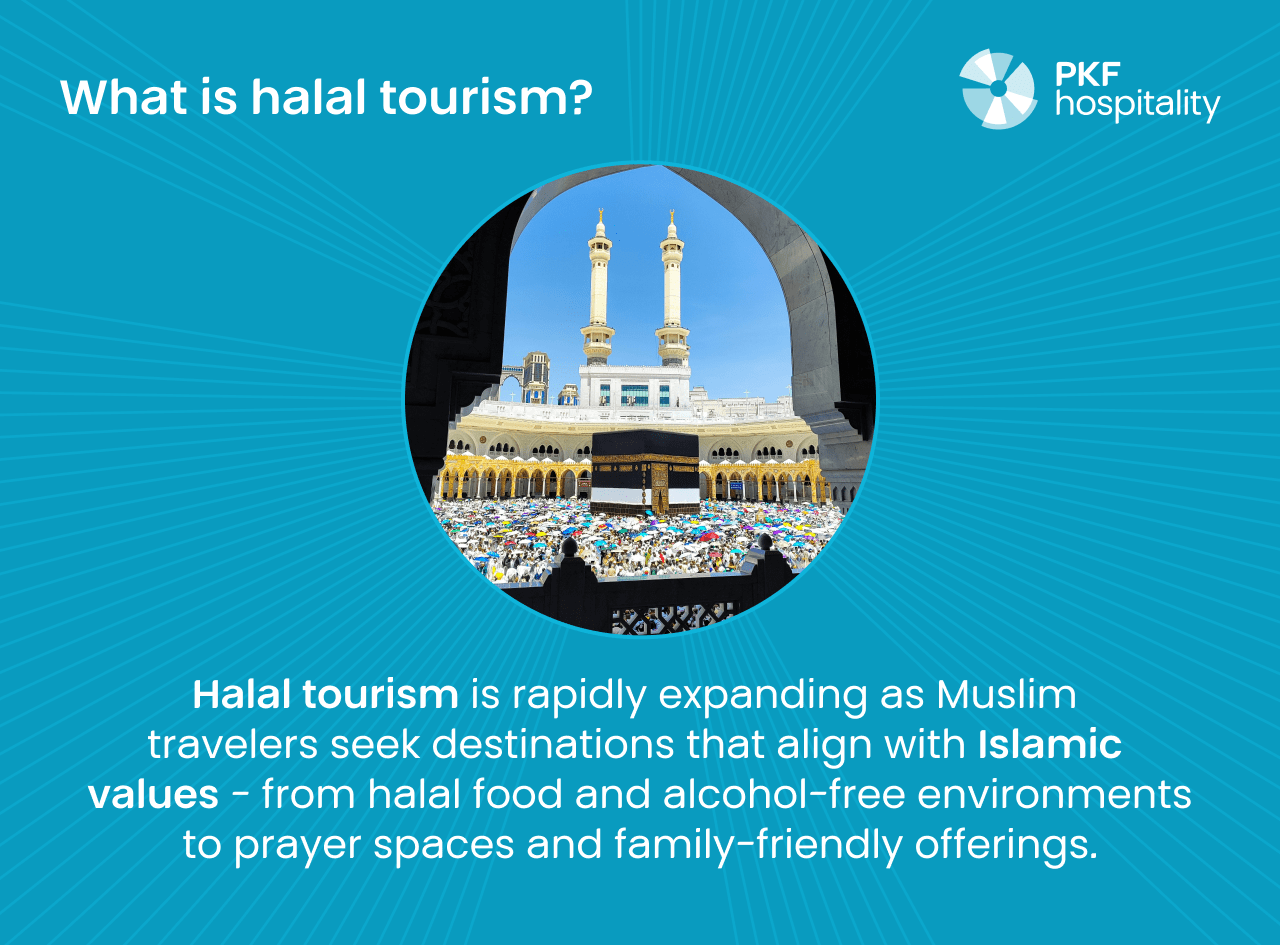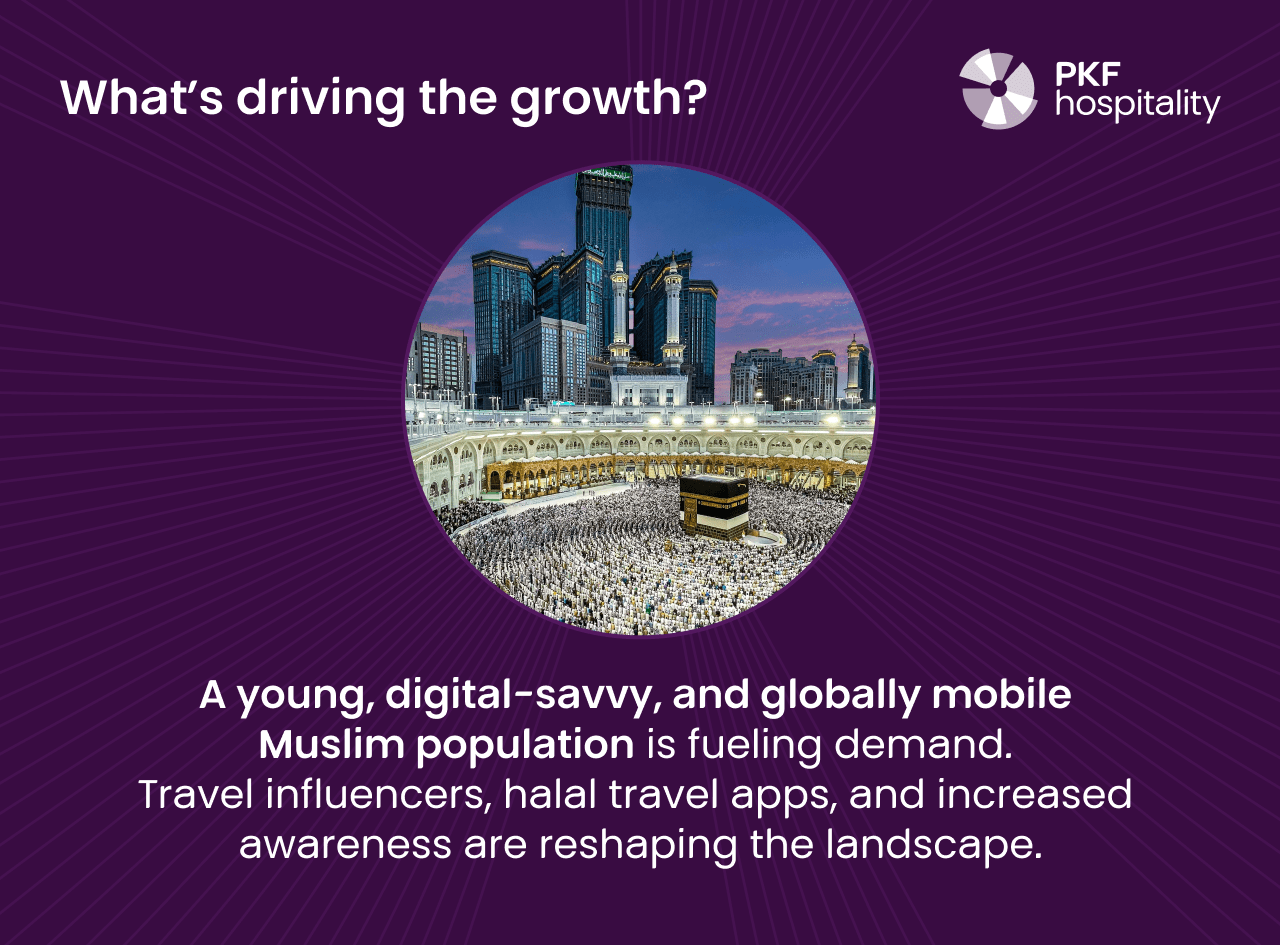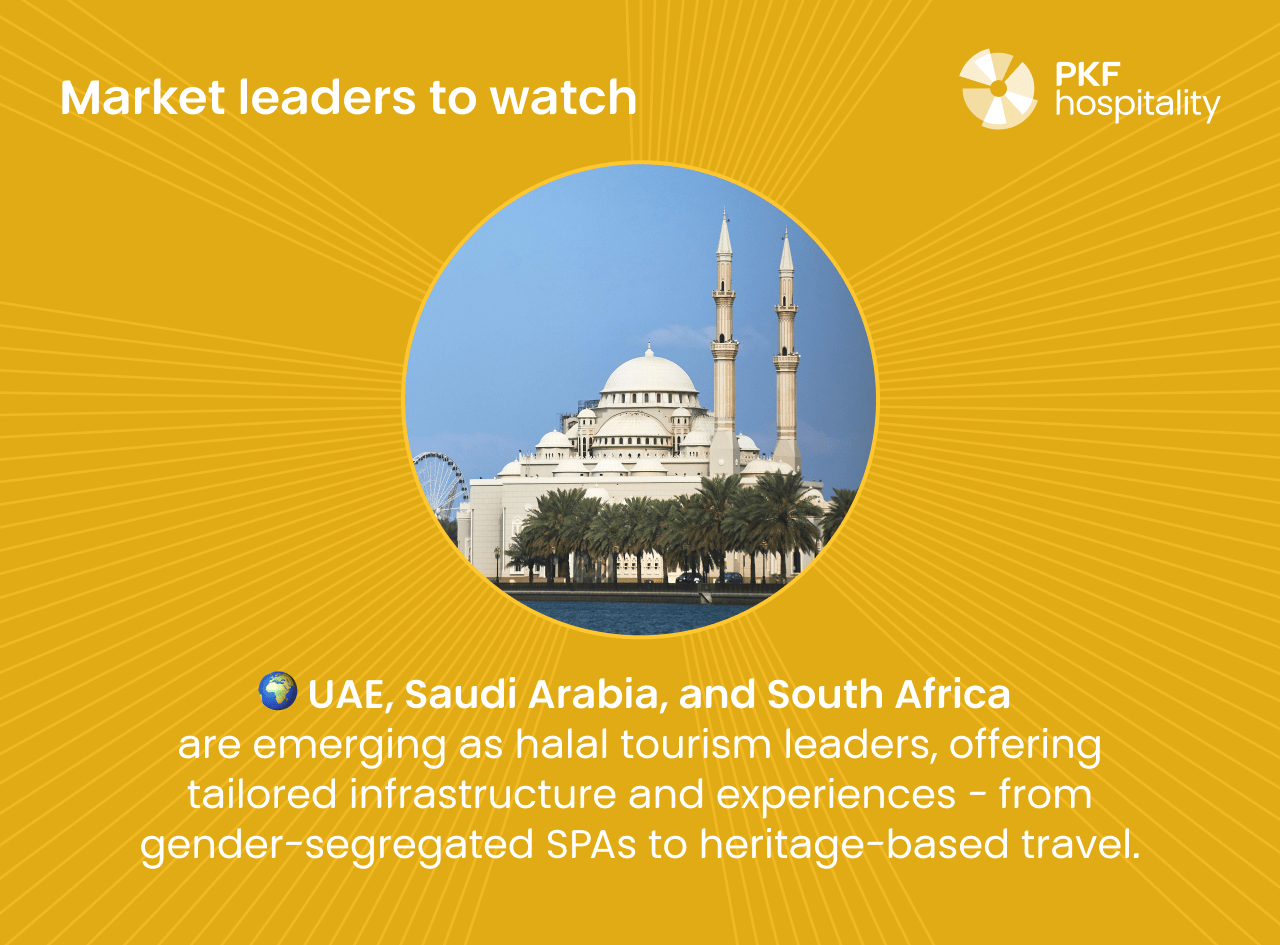Halal tourism on the rise: What it means for travellers and hoteliers

Restaurateurs are responding as diners seek authentic gourmet experiences
The rise of halal tourism is being driven by a young, digitally savvy Muslim population and increased awareness of halal-friendly travel options
In recent years, halal tourism has evolved from a niche offering into one of the fastest-growing segments of the global travel industry.
Defined broadly, halal tourism caters to the needs of Muslim travellers who seek destinations and services aligned with Islamic values, ranging from food options and family-friendly spaces to alcohol-free and pork-free environments, and prayer facilities.
According to the Global Muslim Travel Index, Muslim travellers are projected to spend more than $200 billion a year by 2026. As Muslim populations grow in size and affluence, including new converts in the Americas and Europe, demand for halal-compliant travel is rising rapidly.
The trend is evident not only in Muslim-majority countries like the UAE, Saudi Arabia and Malaysia, but also in diverse, multi-faith destinations such as South Africa, particularly Cape Town, often referred to as the cradle of Islam in the country, where tourism authorities are beginning to recognise the strategic value of catering to this growing segment.

Why now?
Several drivers are fuelling the rise in halal tourism. First is demographic momentum: the Muslim population is young, increasingly mobile, and digitally savvy. Many are second- or third-generation global citizens who want to explore the world without compromising their faith-based lifestyle.
Second, there’s a greater awareness among travellers themselves of what halal-friendly travel can offer, thanks in part to travel influencers, online platforms and specialist apps that review halal hotels, restaurants and travel itineraries.
Technology also plays a role. Platforms such as HalalBooking.com and Muslim-friendly filters on major travel portals help users identify destinations and services that suit their values.
Airlines, hotel chains and even cruise operators are responding in kind, adapting their products to reflect cultural sensitivities and religious practices.

Regional leaders
The UAE has long positioned itself as a luxury travel hub, and today, it also stands at the forefront of halal tourism. From high-end resorts offering halal cuisine and gender-segregated spa facilities to prayer rooms in malls and airports, the infrastructure is already well established. The country’s leadership in this space is reinforced by its cosmopolitan appeal, streamlined visa policies and sustained investment in tourism development.
Saudi Arabia, meanwhile, is undergoing a dramatic transformation. Once closed to most leisure travellers, the kingdom is now aggressively promoting itself as a destination beyond religious pilgrimage.
Vision 2030, its national transformation plan, includes significant investments in tourism, hospitality and entertainment.
The country is building luxury Red Sea resorts and developing heritage tourism in locations such as AlUla, while still preserving strict adherence to Islamic guidelines.
For devout Muslim travellers, this offers a rare chance to explore the kingdom beyond Mecca and Medina while maintaining complete confidence in halal compliance.

Opportunities for restaurateurs and diners
For restaurant owners, halal tourism presents an opportunity to expand their customer base and foster loyalty. Offering halal-certified menus, abstaining from alcohol in certain outlets, and clearly labelling food preparation practices can make an establishment more inclusive.
It’s also essential for operators to understand the distinction between halal food and halal-friendly dining – ambience, service practices and even music policies can impact perceptions.
Diners, on the other hand, are becoming more discerning. Many are no longer satisfied with just the halal label. They expect quality, transparency and authenticity.
There is a growing trend towards fine dining, gourmet halal experiences and creative fusion cuisine that reflects both Islamic principles and global culinary trends.

The way ahead
Despite the opportunity, several challenges remain. Standardisation of halal certification varies by country, creating confusion for both operators and guests.
There’s also a risk of tokenism, where businesses adopt superficial changes without understanding the deeper cultural and religious significance of halal practices. Educating staff, partnering with credible certification bodies and maintaining consistency are crucial to building trust.
Moreover, some non-Muslim-majority destinations may struggle to balance halal-friendly offerings with broader market expectations, especially in areas such as alcohol sales and mixed-use leisure facilities.
Halal tourism is no longer a side note – it’s a central feature of the global tourism economy. For travellers, it opens up more opportunities to explore the world with cultural and religious comfort. For destinations and businesses, it presents a viable growth market that rewards genuine understanding and investment.
As halal-conscious travellers become more vocal and visible, it is likely destinations such as the UAE, Saudi Arabia and South Africa will continue to lead, but only those who offer both authenticity and quality will thrive.
According to Nazreen Salie, manager of Halal Cape Town, which facilitates halal tourism to the city and beyond, International travellers increasingly seek the “authentic Muslim experience”.
“In our experience, we have found halal accommodation in great demand among non-Muslims, too. They equate halal values with safety, family-friendliness and food safety,” Salie says.
On the other hand, she notes Muslim travellers prefer halal-aligned accommodation because “it feels like home – everything is as they require for their Muslim lifestyle”.

Nils Heckscher
Managing Director
Head of Africa and Middle East
PKF hospitality group
E: nils.heckscher@pkfhospitality.com
M: +27 83 2842728
